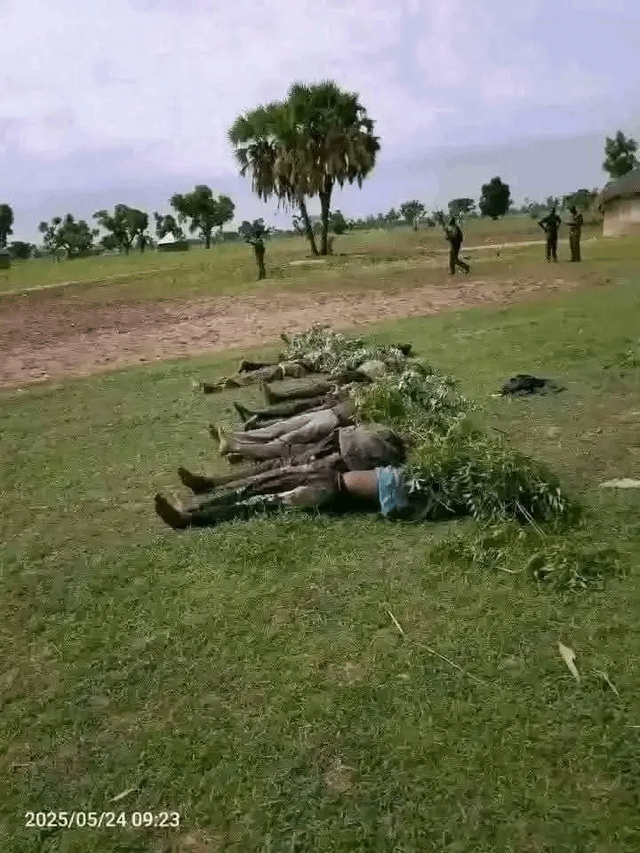The devastating impact of a recent violent incident in central Nigeria has left communities in shock as over 200 civilians, predominantly Christians, lost their lives. This tragic event unfolded in Mubi, a town situated in the northeastern part of Adamawa State, further escalating tensions in a region already fraught with religious and ethnic conflicts.
The Attack Unfolds
According to local sources, the attack commenced late in the night, catching residents off guard. Eyewitnesses describe the assailants as heavily armed individuals who stormed the area, launching indiscriminate attacks on households and properties. The assault appeared coordinated, targeting specific neighborhoods identified as predominantly Christian, causing widespread panic and confusion.
Survivors recount harrowing tales of the chaos that ensued, as families sought refuge amidst the onslaught. The attackers reportedly used explosives and firearms, laying waste to homes and infrastructure. Efforts by local security forces to repel the attackers were outmatched, further exacerbating the scale of devastation. The scene left behind is one of despair, with homes reduced to rubble and families decimated by the loss of loved ones.
A History of Tension
Nigeria has long been a hotspot of religious and ethnic rivalry, with ongoing conflicts between different groups leading to significant unrest. This latest incident is part of a series of attacks attributed to jihadist groups that have targeted minority communities, aiming to destabilize the region and impose ideological divides. Many analysts cite the rise of extremist factions such as Boko Haram and ISWAP, which thrive on exploiting existing regional disparities and grievances.
The Nigerian government has faced mounting pressure to address this growing threat, with critics highlighting insufficient security measures and a lack of proactive interventions. Despite international support and efforts to stabilize the region, the government鈥檚 attempts have fallen short in curbing the influence and reach of these militant groups. The continued vulnerability of communities to such attacks underlines the complex interplay of political, social, and religious dynamics fueling the conflict.
Global Reactions and Humanitarian Concerns
The international community has expressed deep concern and condemnation over the attack, with calls for immediate intervention and support for the affected communities. Various global organizations are rallying to provide humanitarian assistance, addressing the immediate needs of the survivors who face food shortages, inadequate shelter, and medical care.
Human rights groups are urging the Nigerian government and its international partners to bolster protection measures and ensure accountability for the atrocity. The challenge remains significant, with widespread displacement and the psychological scars left on the affected populations. The potential for further violence looms large, prompting ongoing discussions on long-term solutions and peace-building initiatives.
The Path Forward for Nigeria
In light of the tragic events, there is a consensus on the urgent need for a comprehensive strategy to counteract the influence of extremist factions and promote reconciliation among Nigeria鈥檚 diverse communities. Experts advocate for a multifaceted approach incorporating military, socio-economic, and political measures aimed at reducing tensions and fostering sustainable peace.
Community leaders and peace advocates underscore the importance of dialogue and grassroots initiatives to heal divisions and build trust. Education and economic empowerment are seen as vital components in undermining the appeal of extremist rhetoric and creating resilient societies resistant to radicalism.
While the path to peace remains fraught with challenges, the commitment of regional and international stakeholders to work collaboratively could pave the way for a safer and more harmonious future for Nigeria. The resilience of its people, coupled with genuine efforts towards reconciliation, holds the promise of overcoming divisive forces and forging a unified national identity.
This tragic incident serves as a somber reminder of the urgent need for sustained efforts in conflict resolution and the protection of vulnerable populations from ongoing threats. With the eyes of the world on Nigeria, the imperative to act is more pressing than ever.
